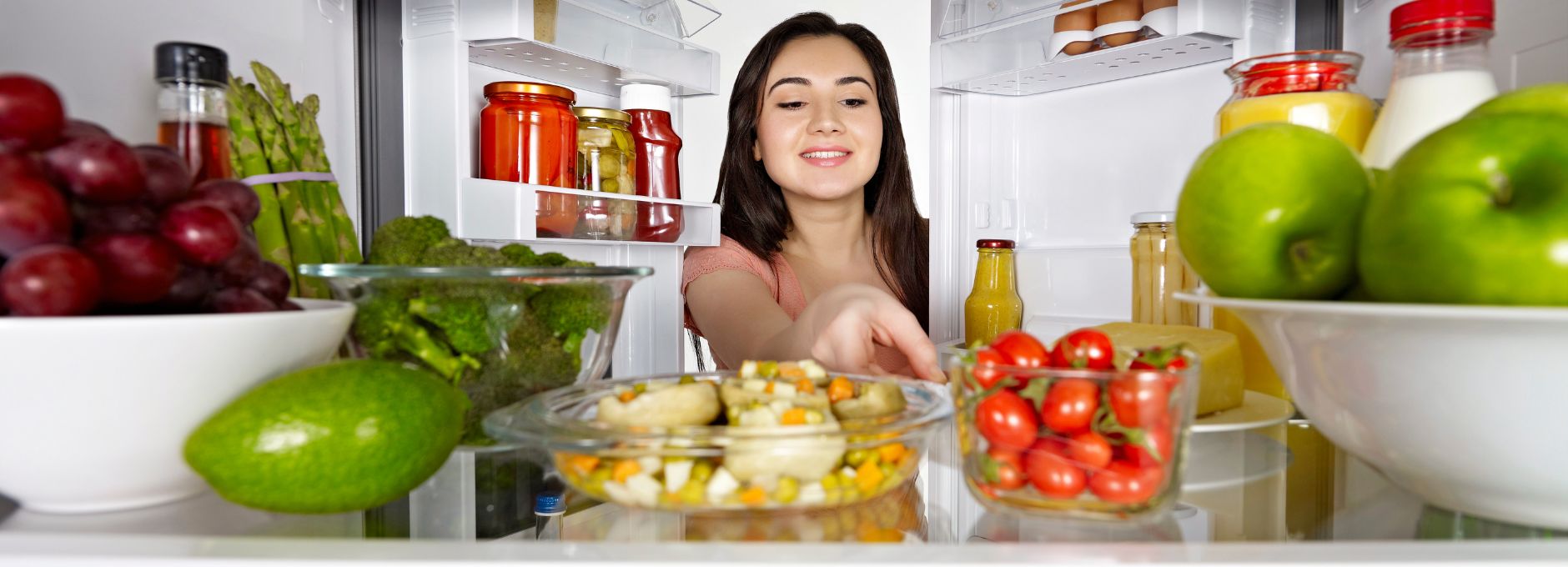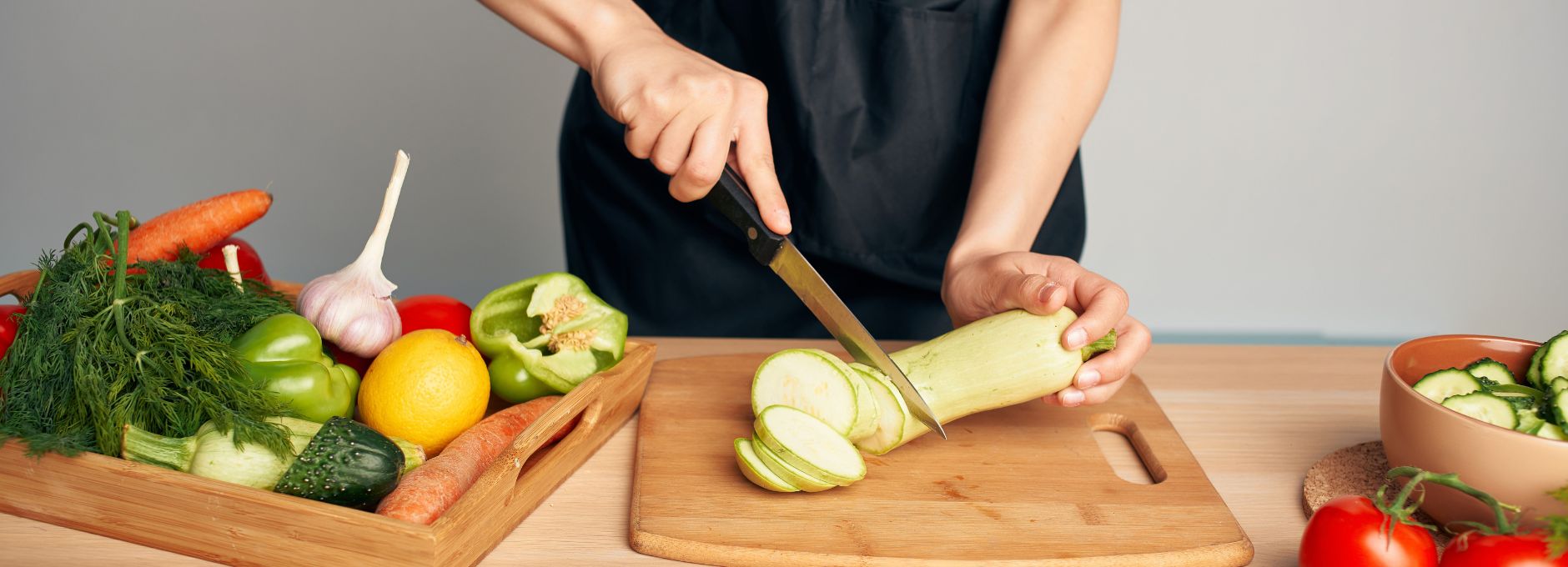How to Make Healthy Eating a Lifestyle

Eat Better
How to make healthy eating a lifestyle
It’s tempting to think of healthy eating just in terms of it being a change to our diet. Consider it like that, however, and it can be all too easy to abandon the concept if it becomes hard to keep up with. What we really need to do is start thinking about healthy eating as a lifestyle.
Trying to fit dietary improvement into our day-to-day existence can be difficult. Attempt to do so without making subtle tweaks to the things we do and the way we actually live and it may soon become a square peg/round hole situation.
There are lots of little changes we can all make to our lifestyles which allow the idea of eating healthy to flourish. Here are some of our favourite tips on how to stop considering a nutritious diet as something you ‘need to do’ and how to make healthy eating your lifestyle

Healthy eating as a lifestyle
Set aside time to plan your meals
One of the biggest barriers to a lifestyle of healthy eating is consistency1. Most people who decide to improve the way they eat start with enthusiasm. What you need to avoid is the tail-off after that first wave of verve and gusto.
One of the best ways to establish and maintain a dedicated approach to your new diet is to make sure that you plan ahead. Research healthy eating, look up recipes, pick some and then write out a comprehensive shopping list for the supermarket.
This level of planning should all but eliminate the temptation or need to shop on the fly and let special offers or appealing items tempt you. After a while, you’ll incorporate this meal planning into your weekly routine and be shopping healthily and consistently.
Wake up earlier to make time for a healthy breakfast
Most of us fight a daily battle against our watches. With hectic schedules, work and family life to consider, we don’t always have a lot of time for other things.
Dietary improvement doesn’t need to be a time drain, but you will need to be able to dedicate a short period each day to making sure you’re eating the best way you can. One easy way to do this is to effectively ‘steal’ a few minutes from your morning slumber.
Later risers tend to skip breakfast – a big mistake if you want to make healthy eating a lifestyle. Skip your morning meal and you’ll find yourself hungry later in the day and tempted by sugary snacks2.
The day’s first meal needs a little time to prepare and eat. So if you can set your alarm slightly earlier than usual, you can make sure you have enough time to make breakfast as nutritious as possible.
Whether it’s a delicious fruit and veg-filled smoothie or a nutrient-packed egg-based breakfast, you’ll benefit from the slight change to your wake-up routine.
Make sure the cupboards and fridge are always well stocked
Healthy eating can be tricky when you’re eating on the fly and rustling up meals from what’s left in the fridge, cupboards and freezers. Bad habits can creep back in and unhealthy meals are often the result.
Worse still, if you’re running particularly low on supplies, the temptation to order takeaways can creep in. The answer to this is to ensure that your kitchen is always well stocked.
Not only should this apply to meals, ideally you want to have any snacks or treats covered too. There’s nothing wrong with either, provided they’re eaten either in moderation or they’re healthy and low in calories. Whether it’s frozen grapes, low-fat chocolate bars or your favourite yoghurt, a well stocked cupboard can help you make healthy eating part of your lifestyle.
Consider growing your own produce
Whole foods like fruits and vegetables are integral to a nutritious diet. While, of course, these are all available from supermarkets and greengrocers, there are lots of advantages to growing your own:
- Homegrown produce is fresher and more nutritious than shop bought3
- It works out much cheaper
- Growing produce is a brand new life skill
- Provided you get into it, gardening can be a lot of fun
- You cut the carbon footprint of your food down4
- It’s good exercise
- Gardening is an excuse to be outside, in nature, absorbing Vitamin D, which is great for your health5
Don’t have a huge garden? Even a window box is enough to grow some smaller veggies or herbs. This isn’t all about yield, it’s about personal investment. The more you care, the greater your connection to a healthy eating lifestyle.
Another option is to enquire with your local authority about getting your own allotment patch.
Try and get ‘into’ nutrition
If you can get interested in healthy eating as a lifestyle, you’ll begin to enjoy researching, preparing and eating new meals. That enthusiasm should hopefully cement your new approach to food and turn it from a passing interest into a long-term lifestyle approach.
The world of diet and nutrition is a pretty fascinating one, once you begin looking into it. While there’s lots of intriguing biochemical science to get your teeth into, there are also a lot of practical applications too.
The more you’re fascinated by the subject, the greater the chance you’ll understand the benefits and stick with your new healthy eating way of life.
Make batch cooking part of your weekly schedule
Cooking your meals in advance and having them ready in the freezer, waiting to be reheated, can be a smart move when working towards healthy eating as a lifestyle choice. All you need to do is factor a cooking session into your weekly schedule, perhaps on a Sunday afternoon.
There are all sorts of perks to batch cooking your meals. Eliminating the temptation for ordering takeaways or buying last-minute high-salt microwave meals is probably top of that list. They’re also a great way to keep portion size down and consistently sized.
Also, because preparing your meals in advance requires you to think about what to eat ahead of the time, it can lead to far more nutritious meal choices on a long-term basis.
Eat in instead of out more
Eating out in restaurants doesn’t necessarily have to mean giving up total control of your calorie intake. It can make it challenging, though. If you eat out a lot, it may well pay to cut down on the nights out and stay in more.
Dietary quality and food with high nutritional value is much more common in home cooking too6. Almost all restaurants, understandably, prioritise taste over calories.
If restaurant dining is a much-loved hobby of yours, you don’t need to give it up. You only need to cut down a little and think healthily when the menu’s in your hand.
Incorporate healthy eating into your lifestyle every day using some or all of these tips and you’re sure to feel the benefit. Make it a lifestyle choice that’s part of how you behave – and not just something you feel you have to do – and you’ll be eating better and losing weight in no time.
